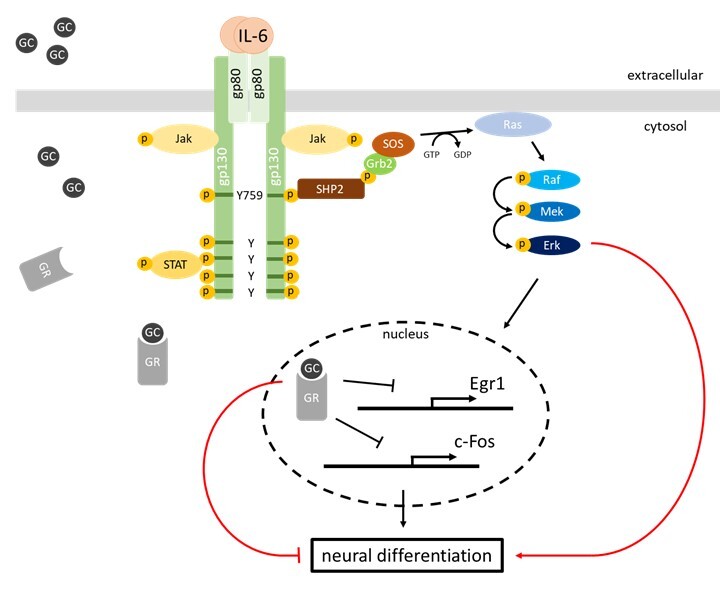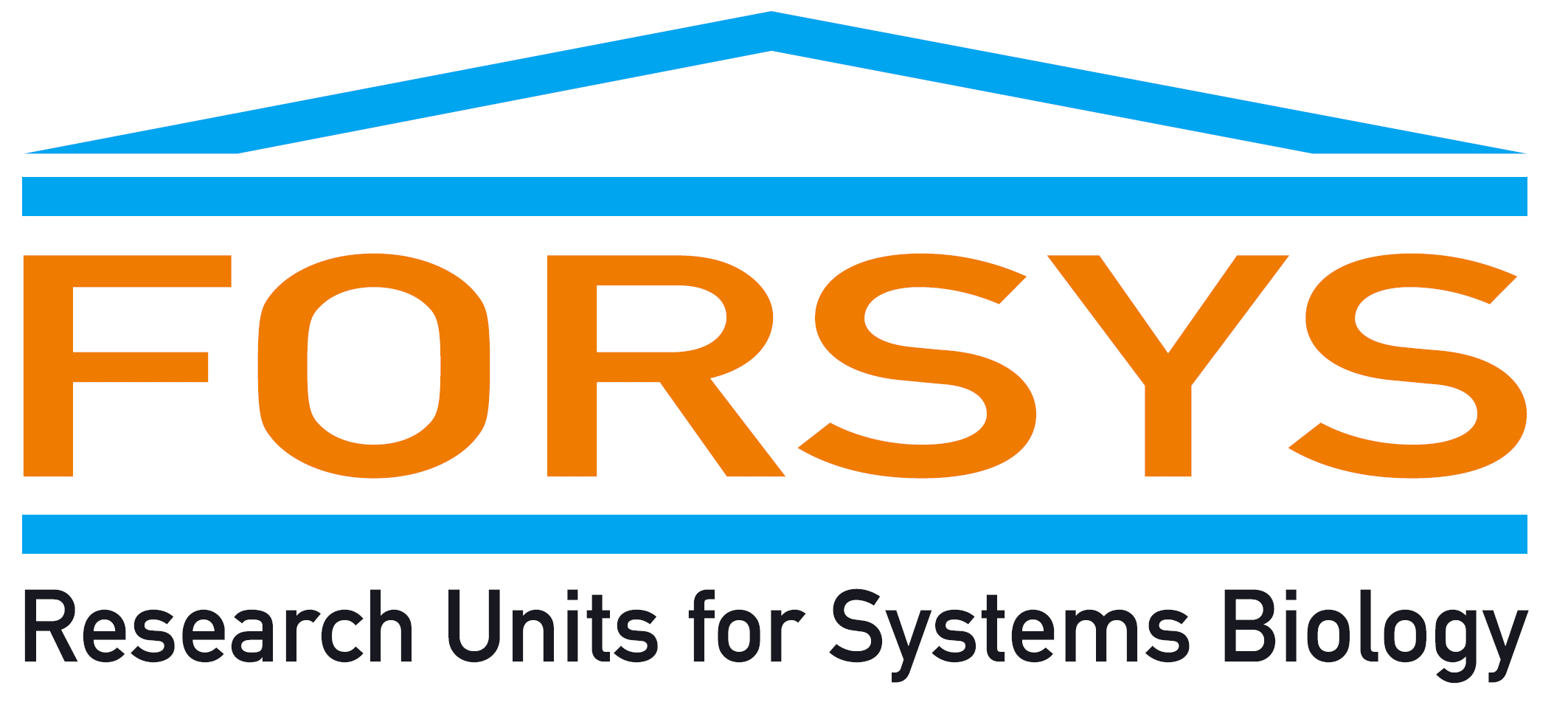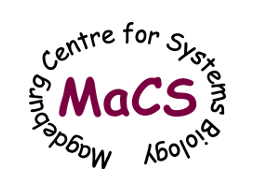Regulation of IL-6-induced SOCS3 expression
Glucocorticoids (e.g. cortisol) are endogenous mediators that are secreted in stress situations. Synthetic glucocorticoids (e.g. dexamethasone) have been used since the 1950s to treat inflammatory diseases. However, the exact mechanisms of their effects and side effects are still not understood.
Glucocorticoids increase the IL-6-induced expression of acute-phase proteins. Together with the group of Prof. Bode (Düsseldorf), we were able to show that this is triggered, among other things, by increased JAK/STAT signal transduction. We could explain this hyperactivation of JAK/STAT signal transduction by a reduced translation of the IL-6-induced feed-back inhibitor SOCS3. Together with Prof. Kaempfer (Jerusalem), we were able to show in a DFG-funded project that SOCS3 isoforms with different stability contribute to a finely tuned regulation of IL-6 signal transduction.

IL-6 also influences neuronal development, which can be affected by stress in childhood and adulthood. Therefore, in cooperation with Prof. Bock (Magdeburg), we are investigating whether glucocorticoids influence IL-6-induced neuronal development. We could show that IL-6 triggers MAPK cascade-dependent neurite growth. In contrast, the glucocorticoid dexamethasone impairs neurite growth.
In addition to the cross-talk between IL-6 and glucocorticoids, we are also studying the molecular basis of the interplay between glandular hormones (prostaglandin, glucagon), as well as pro-inflammatory cytokines (e.g. interleukin 1) and IL-6.






